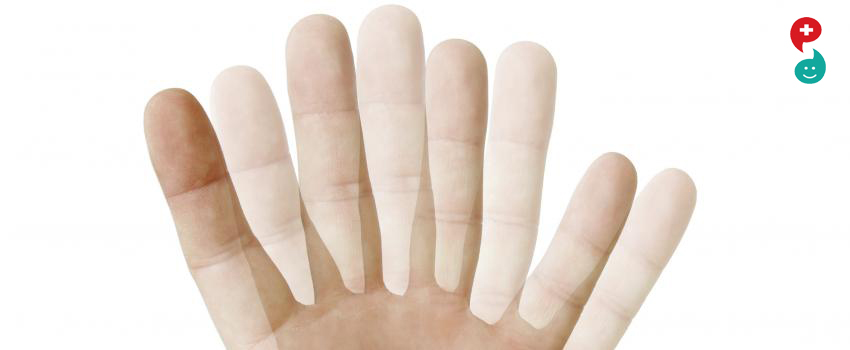
Double vision occurs when a person sees a double image where there should only be one. The two images can be side by side, on top of one another, or both.
The condition can affect balance, movement, and reading ability.
If double vision affects just one eye, it is monocular. If it affects both eyes, it is binocular. Treatments depend on the cause and type, but they include eye exercises, specially designed glasses, and surgery.
This article will look at the causes, diagnosis, and treatment of double vision.
Fast facts on double vision
Here are some key points about double vision. More detail is in the main article.
Double vision, or diplopia, can result from a range of underlying conditions.
Diplopia can affect just one eye or both.
A childhood squint, or eye turn, can sometimes recur and cause double vision.
Temporary double vision can be caused by alcohol or other recreational drugs.
Treatments can include surgery, eye exercises, or corrective lenses.
Causes
double vision blurred hand crop
double vision blurred hand crop
Nerve or muscle damage in the eye might cause double vision.
Each eye creates its own image of the environment. The brain combines the representations from each eye and perceives them as one clear picture.
Damage to the muscles that move the eyes or the nerves that control eye movement can create a double image.
The eyes must work together to create depth of field.
Certain illnesses can weaken the muscles moving the eyes and produce double vision.
Causes of binocular double vision
A common cause of binocular double vision is a squint or strabismus.
This occurs when the eyes are not properly aligned. Strabismus is relatively common in children. However, the condition does not always result in double vision.
Strabismus causes the eyes to look in slightly different directions. This might be because the affected eye muscles have the following difficulties:
They are paralyzed or weak.
They have restricted movement.
They are too strong or overactive.
The nerves controlling the eyes muscles have abnormalities.
Sometimes, a squint can return later in life for people who had a squint as a child. In some cases, the treatment of a squint can actually cause double vision, despite the individual's vision being normal before the squint was treated.
This is because the brain had been suppressing signals from one of the eyes in an attempt to maintain normal vision.
Other conditions can cause double vision include:
Thyroid dysfunction: The thyroid gland is in the neck and produces a hormone called thyroxine. Changes in thyroid function can affect the external muscles that control the eye. This includes Grave's ophthalmopathy, in which the eyes can appear to protrude because fat and tissue build up behind the eye.
Stroke or transient ischemic attack (TIA): In a stroke, blood fails to reach the brain due to an obstruction in the blood vessels. This can affect the blood vessels supplying the brain or nerves controlling the eye muscles and cause double vision.
Aneurysm: An aneurysm is a bulge in a blood vessel. This can press on the nerve of the eye muscle.
Convergence insufficiency: In this condition, the eyes do not work together correctly. The cause is unknown, but it is thought to be due to the muscles that control the eye not lining up correctly.
Diabetes: This can affect the blood vessels that supply the retina at the back of the eye. It can also affect the nerves that control eye muscle movements.
Myasthenia gravis: This can cause weakness in the muscles, including those that control the eyes.
Brain tumors and cancers: A tumor or growth behind the eye can interfere with free movement or damage the optic nerve.
Multiple sclerosis: MS is a disease that affects the central nervous system, including the nerves in the eyes.
Black eye: An injury can cause blood and fluid to collect around the eye. This can put pressure on the eye itself or the muscles and nerves around it.
Head injury: Physical damage to the brain, nerves, muscles, or eye socket can restrict the movement of the eye and its muscles.
Causes of monocular double vision
If double vision is noted when one eye is covered but not the other, this is referred to as monocular double vision.
cataract double vision
Cataracts are a possible cause of double vision.
Monocular double vision is less common than binocular double vision. The following conditions can cause monocular double vision and can be caused by the following conditions:
Astigmatism: The cornea, or the transparent layer at the front of the eye, is irregularly shaped. With astigmatism, the cornea has two curves on the surface similar to a football instead of being perfectly round like a basketball.
Dry eye: The eye does not produce enough tears, or it dries out too quickly.
Keratoconus: This is a degenerative condition of the eye that causes the cornea to become thin and cone-shaped.
Retinal abnormalities: In macular degeneration, for example, the center of an individual's field of vision slowly disappears, and sometimes there is swelling which can cause double vision in one eye.
Cataracts: Cataracts occur in more than half of all people in the United States over the age of 80 years and can sometimes cause double vision in one eye.
Temporary double vision
Double vision can sometimes be temporary. Alcohol intoxication, benzodiazepines, opioids, or certain medications for seizures and epilepsy sometimes cause this. Head injuries, such as concussions, can also cause temporary double vision.
Being particularly tired or having strained eyes can bring on temporary double vision. If normal vision does not return quickly, seek medical attention as soon as possible.







